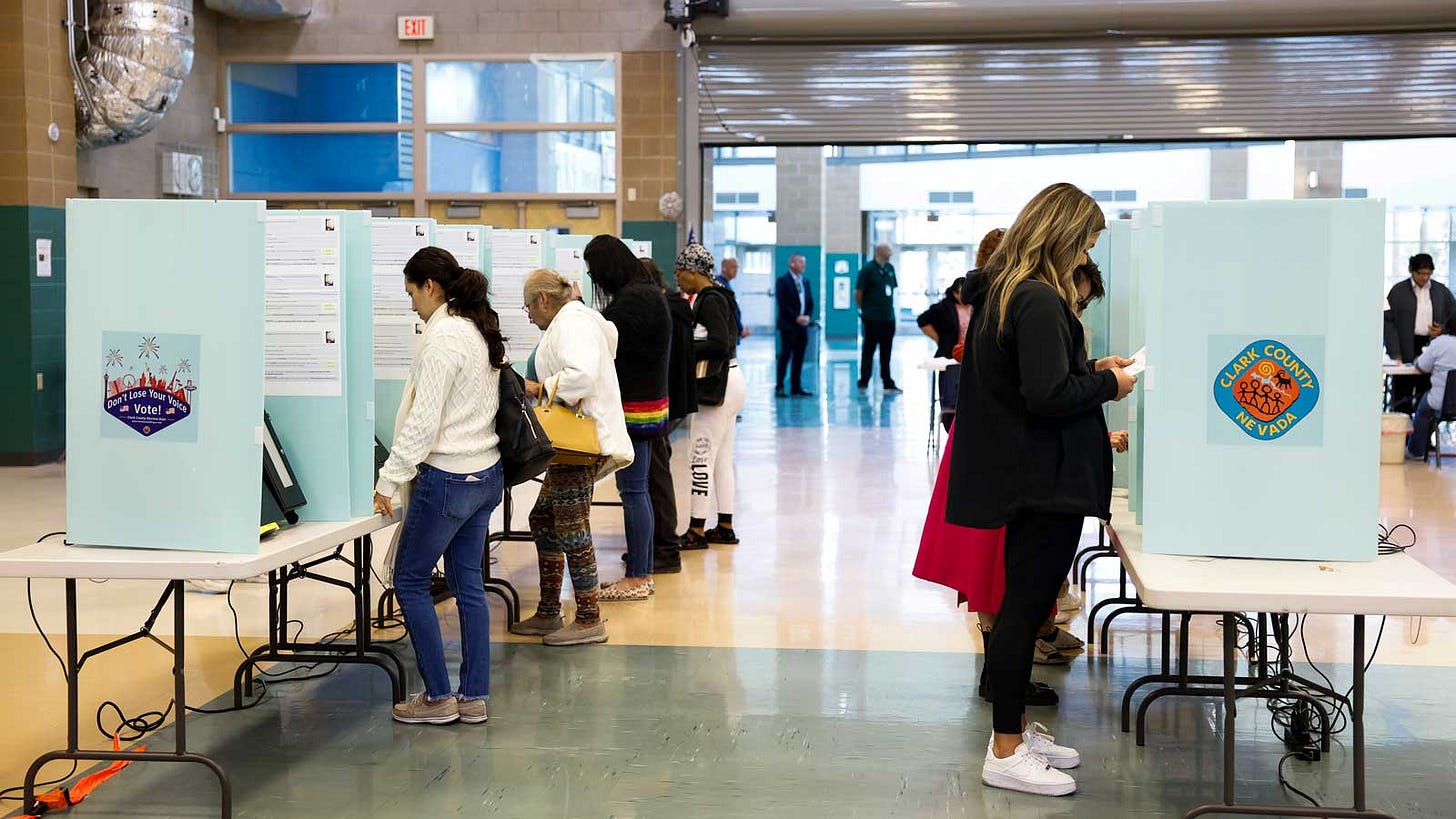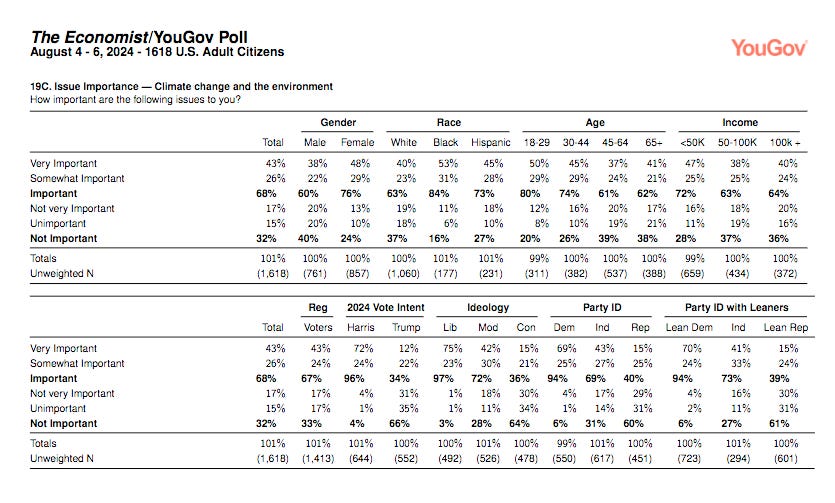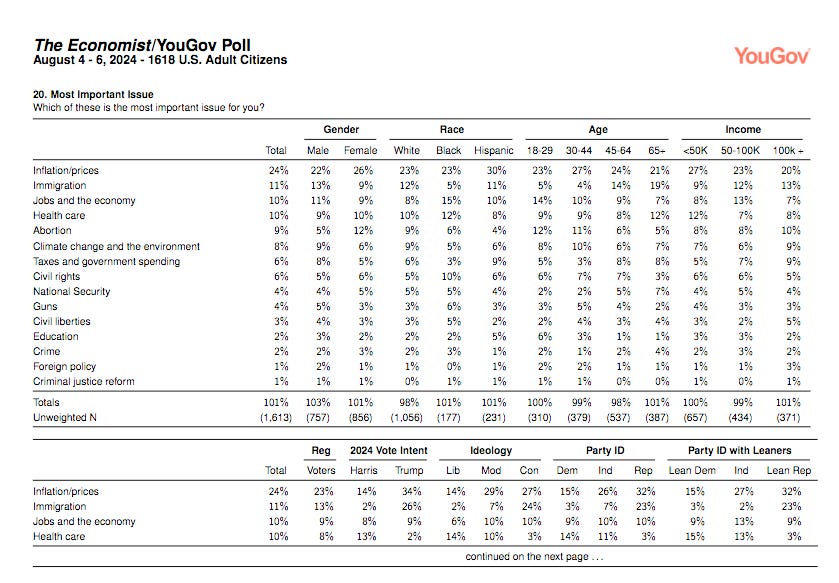Publisher’s Note
Unlike most thinkers and prognosticators watching over today’s political and public policy space, we’re looking very closely at the heat. By heat, we mean the very dramatic and continuously dangerous climate shifts that are placing us all on a precarious slide toward planetary destruction as policymakers move too slow on solutions and the media industrial complex refuses to bring the issue up. It’s an issue that should be taking center stage during the 2024 election season given a record-breaking 13-months of global heat waves, as Associated Press reports.
Yet, as existential as the issue is, climate crisis only came up in one question during that last fateful presidential debate earlier this summer (which ended up, unfairly and prematurely, toppling the most aggressive climate crisis-responsive president we ever had). As Fast Company put it back in June …
Over more than an hour and a half of back-and-forth, climate change got just a couple minutes of airtime during a CNN-hosted debate between President Joe Biden and former president Donald Trump on Thursday.
It was the first time the men had faced each other on the debate stage since October 2020. Both candidates were reportedly eager for the confrontation, with Biden’s team seeking to warn voters about the increased radicalism that Trump is promising to bring to a second term, and Trump keen on digging into his rival’s alleged cognitive decline.
Unfortunately, we’re expecting that trend of annoyingly nominal climate crisis coverage from media to repeat itself in 2024, just like it was in 2023, referencing Evlondo Cooper’s study in Media Matters: the media industrial complex “scaled back” climate coverage by 25 percent in 2023, down from the previous years …
A big part of the problem is that while voters do admit they’re concerned about the climate, too many are not willing to prioritize it above other issues. This should be a driving issue, right? Human survival. Yet, it’s not registering the way it should, as Pew showed us earlier this year when ranking issues …
That’s largely because of the way it’s being badly framed by a number of people and interests on both sides of the aisle, from policymakers who either won’t go bold or others who are lining their campaign accounts with oil and gas money to climate advocates and scientists themselves who are having trouble explaining it, in the simplest of terms, to the broader public.
The latest Economist/YouGov poll had 68 percent of voters finding it “important” - but, not enough (only 43 percent) ranking it as “very important” …
We get it, there are a lot of very critical issues to worry about. The stakes are high, quite a bit is on the line. Still, is it a lot to ask for voter focus on ensuring our planet remains intact just over the horizon?
But, but, but: interestingly enough, it does rank #6 out of 15 in terms of issue importance, which is significant and means that candidates - in this case, Democrats - really should consider giving climate messaging a try.
Messaging is key. We’re seeing that, naturally, most people concerned about quality of life, high consumer prices and the economy. Immigration is ranked second. All of these issues intersect heavily with climate crisis and, if candidates would explain it clearly and correctly, they can actually be solved or fixed if climate crisis were addressed. Quality of life across all sectors improves when you have a fully functional life support system of air, water and land to live off of, otherwise you’re literally dead. Consumer prices, from food to energy to housing, dramatically decrease when we’re all living off sustainable and clean energy-driven infrastructure. More jobs - even for those without a college degree - are available and more small businesses built when we’re designing, creating and building a brand new sustainable, green world. The immigration crisis at the U.S.-Mexico border is solved when we’re 1) finding ways to reduce climate impacts in other countries so migrants aren’t forced north into the U.S. and 2) using migrants to help build up a stronger, greener economy (the economy, by the way, has been resilient in lately because of migrant participation).
Clearly, candidates don’t want to have the right conversations. That doesn’t mean we shouldn’t.







